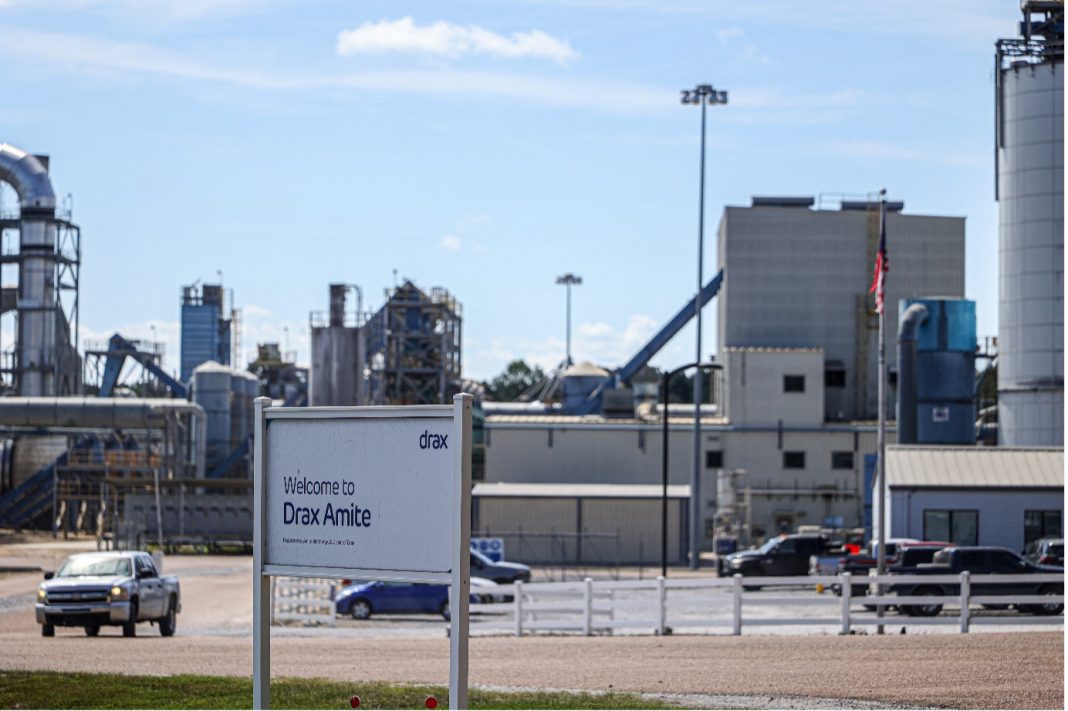In the small town of Gloster, Mississippi, Sheila Mae Dobbins and her neighbors are grappling with a harsh reality: the promise of economic revitalization brought by the Drax Group’s wood pellet mill has turned into a nightmare of health crises and environmental degradation. Dobbins, a 59-year-old mother of two, relies on an oxygen tank to breathe, a necessity shared by several family members and neighbors. Her husband, Neal, also depended on oxygen before his death in 2017, a loss compounded by Dobbins’ own health struggles, including heart disease and chronic obstructive pulmonary disease (COPD).
The Drax facility, which opened in 2014, was initially marketed as a boon for the local economy, with promises of investment and job creation. However, the reality has been starkly different. The mill employs only a handful of local workers, and its wood pellets are primarily shipped overseas to be burned for electricity in the U.K. Drax’s claims of promoting renewable energy have been overshadowed by reports of air pollution and health issues among residents. In 2020, the facility was fined $2.5 million for exceeding legal limits on harmful air pollutants, yet violations have continued, raising serious questions about the company’s commitment to environmental responsibility.
Residents like Myrtis Woodard and Debra Butler echo Dobbins’ concerns, describing a decline in their quality of life since the mill’s arrival. Woodard, who suffers from asthma and COPD, laments the inability to enjoy the outdoors due to the foul air. Butler has seen her reliance on inhalers triple since the mill opened. The community, which has a poverty rate of 39%, faces compounded health challenges, with Mississippi ranking near the bottom in overall health and childhood respiratory diseases.
A recent study by a research team at Brown University has illuminated the severity of the air quality issues in Gloster. Led by Erica Walker, the research indicates that Gloster has significantly higher levels of volatile organic compounds (VOCs) compared to a similar town without a wood pellet mill. Walker’s findings suggest that these pollutants, which can lead to both short-term health irritations and long-term conditions like cancer, are particularly concerning for vulnerable populations, including children. The study also noted alarming spikes in VOC emissions during the night, raising suspicions about the mill’s operational practices.
Drax has consistently denied any adverse impact on the health of Gloster residents, citing an independent analysis that purportedly found no harmful effects. However, the lack of transparency regarding the consulting firm’s identity and the specifics of their findings has left many in the community skeptical. Dobbins, who has become a vocal advocate for her neighbors, insists on the need for accountability and change. “I am a walking testimony,” she asserts, determined to fight for cleaner air as long as she can.
The broader implications of Drax’s operations extend beyond Gloster. The company operates multiple pellet mills across the U.S. and Canada, and its practices have drawn scrutiny for environmental violations. Reports have surfaced detailing hundreds of violations in Canada alone, with Drax facing fines for similar breaches in Louisiana. Environmental attorney Patrick Anderson warns that the company’s history of bypassing pollution controls raises serious concerns about regulatory compliance and community safety.
As Drax seeks to expand its operations in the U.S., including new projects in Washington state and California, local activists and environmentalists are rallying against what they perceive as a pattern of environmental injustice. The proposed pellet mills in California, framed as part of a wildfire mitigation initiative, have sparked fears that the same issues plaguing communities in the Southeast will be replicated. Critics argue that the focus on profitability over genuine environmental stewardship undermines the stated goals of these projects.
The situation in Gloster reflects a larger trend in the biomass energy industry, where the push for renewable energy often clashes with the realities of environmental degradation and public health risks. Drax’s reliance on government subsidies to maintain profitability raises questions about the sustainability of its business model. A 2023 report revealed that without these subsidies, Drax would operate at a loss, prompting the company to seek new revenue streams through the construction of additional biomass power plants in the U.S.
As the U.K. government grapples with the implications of its biomass policies, including the controversial carbon accounting rules that allow Drax to report its emissions as zero, the future of the wood pellet industry hangs in the balance. Environmental advocates are calling for a reevaluation of these practices, emphasizing that the transition to clean energy should not come at the expense of community health or forest ecosystems.
In Gloster, the residents’ fight for clean air and accountability continues, fueled by the hope that their voices will be heard amid the complexities of corporate interests and environmental policy. As Dobbins poignantly puts it, “I died three times, but God was not ready for me.” Her determination to advocate for her community serves as a testament to the resilience of those who refuse


